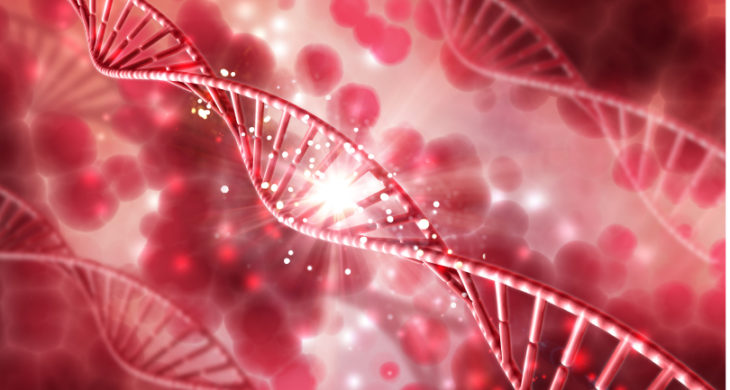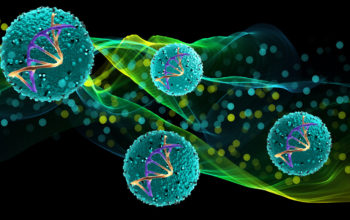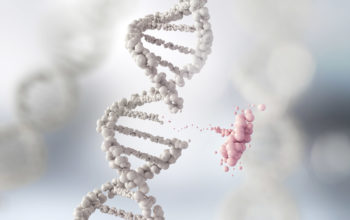
Date: 24th February 2022
Thalassemia is a group of inherited blood disorder characterised by the formation of abnormal form of haemoglobin. About 100,000 babies worldwide are born with severe forms of thalassemia each year, and it is estimated over 280 million people suffer from the disease. Those with the most severe type of the disease require red blood cell transfusions every month for survival, which can cause serious complications. Now, researchers show for the first time in an international Phase 3 clinical trial that children younger than 12 years upon a one-time gene therapy become transfusion independent.
Transfusion-dependent β-thalassemia (TDT) is one of the most common genetic diseases characterised by a deficiency of functional β-globin. It results in severe anaemia, which is managed by lifelong transfusions which often leads to iron overload, leading to serious comorbidities and reduced survival. As the underlying genomic cause of thalassemia is well known it has been a focus of scientists for gene therapy in the hope of finding a cure.
Betibeglogene autotemcel or Beti-cel as it is also known, has been developed by Bluebird Bio, Inc., a biotechnology company based in Cambridge, US, pioneering the development of gene therapies for severe genetic disorders and cancer, by recoding life. Beti-cel adds functional copies of a modified form of the β-globin (βA-T87Q-globin) gene into a patient’s own haematopoietic stem cells (HSCs) through transduction of autologous CD34+ cells using a BB305 lentiviral vector. The modified cells are infused back into the patient after chemotherapy.
The open-label Phase 3 clinical trial was designed to evaluate the efficacy and safety of beti-cel in adult and paediatric patients with transfusion-dependent β-thalassemia and a non–β0/β0 genotype. A total of 23 patients were enrolled at Ann & Robert H. Lurie Children’s Hospital of Chicago, US, including 7 under the age of 12.
Transfusion independence occurred in 91% of patients, and for paediatric patients 87% were no longer transfusion dependent after treatment. Patients typically reached transfusion-free status about one month after transplantation, and were further monitored for just over a year and up to four years.
The therapy was well tolerated although four patients had at least one adverse event that may have been due to beti-cell treatment. One patient experienced thrombocytopenia however the other events were nonserious. No cases of cancer were observed. Those smaller number of patients who still required transfusions required them less frequently.
Conclusions and future applications
Treatment with beti-cel resulted in a sustained HbAT87Q level and a total haemoglobin level that was high enough to enable transfusion independence in most patients, including those younger than 12 years of age.
Based on the positive results of this Phase 3 trial, Bluebird Bio has applied for the FDA review, which is expected to be completed in the summer 2022.
It is hoped this gene therapy will improve the lives of those suffering from TDT, and in particular will transform paediatric care for the youngest of patients. Gene therapy for TDT has already been trialled successfully using CRISPRs gene editing. In this case hematopoietic stem and progenitor cells from the patients were edited ex vivo to produce foetal haemoglobin rather than the faulty adult haemoglobin. The potential advantage here however, is that functional copies of the gene that is mutated is added rather than re-activation of a foetal version.
The inclusion of children in this trial will likely be a welcome one, it is common for medicines to be tested in adults first and often translation into children is understandably a slow and precautious affair. We are now at least starting to see the latest generations of gene therapies filtering down to children, such as our recent report of children with the neurodevelopmental disorder aromatic L-amino acid decarboxylase (AADC) deficiency who had undergone gene replacement therapy and had all experienced life-changing gains in motor function. The use of these types of therapies will be crucial to address genetic diseases and it is hoped will offer life-changing treatments for the most vulnerable of children.
For more information please see the press release at Lurie’s Children Hospital
Locatelli, F., Thompson, A.A., Kwiatkowski, J.L., Porter, J.B., Thrasher, A.J., Hongeng, S., Sauer, M.G., Thuret, I., Lal, A., Algeri, M., et al. (2021). Betibeglogene Autotemcel Gene Therapy for Non–β0/β0 Genotype β-Thalassemia. New England Journal of Medicine 386, 415-427.
https://doi.org/10.1056/NEJMoa2113206
http://eha.3a7.mywebsitetransfer.com/crispr-editing-therapy-promising-first-patient-data/
http://eha.3a7.mywebsitetransfer.com/gene-therapy-hope-children-rare-genetic-disorder/


